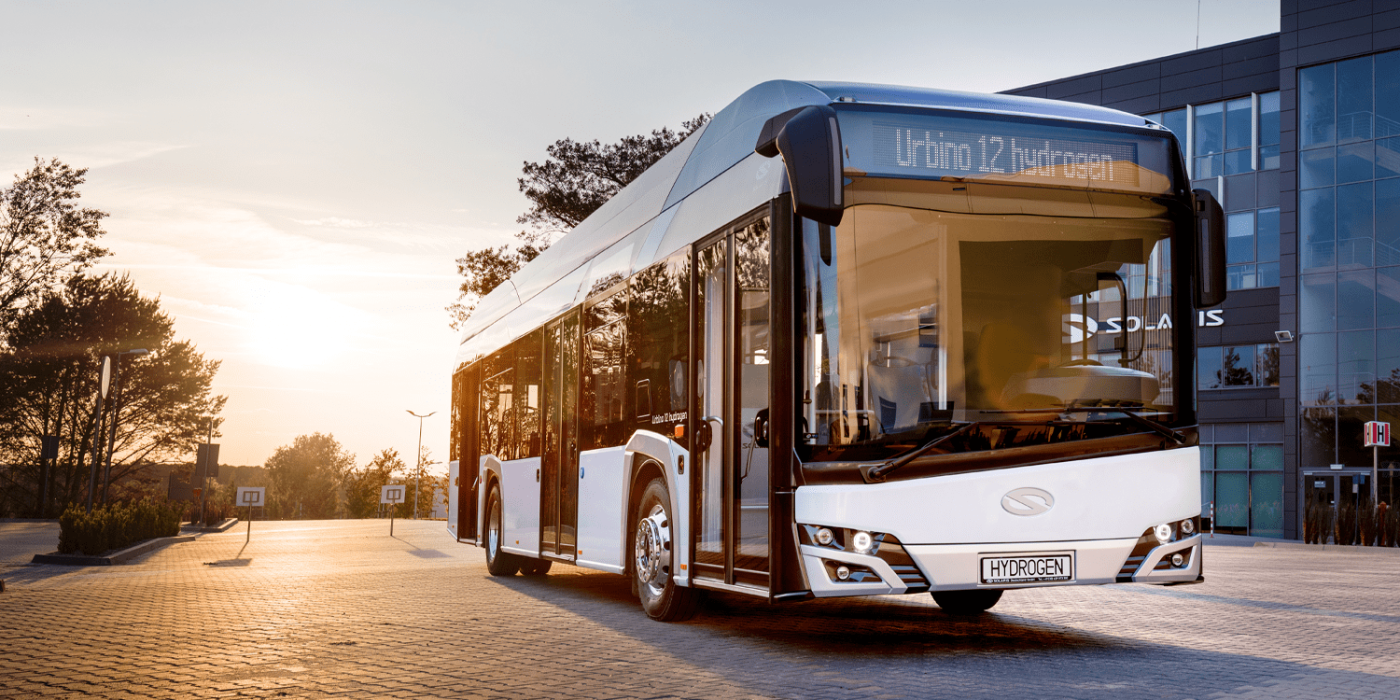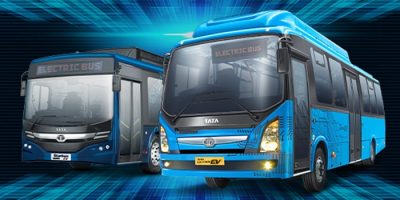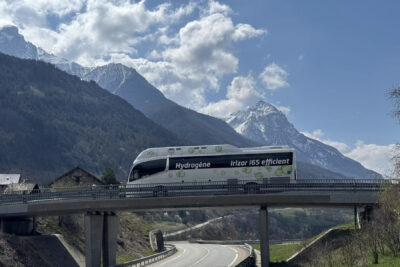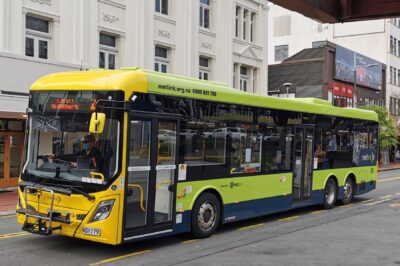Hamburger Hochbahn orders five H2 buses from Solaris
Public transport provider Hamburger Hochbahn continues electrifying its fleet using fuel cell buses. The transport operator has ordered five units from the Polish manufacturer Solaris. The Solaris Urbino 12 Hydrogen are scheduled for delivery in the second half of 2024 and will be used in regular passenger service in Hamburg.
Hochbahn explains in a blog post that the company initiated a tender to procure up to 50 fuel cell buses by 2025. That resulted in the first order now placed with Solaris. Hochbahn sees the H2 buses as an additional technology option, while it will continue to replace its diesel buses primarily with battery buses. However, according to the transport operator, some buses have to run 250 to 300 kilometres, for which the battery technology is not yet suitable.
The hydrogen-fuelled quintet will be stationed at the Hummelsbüttel depot from 2024 and refuelled at a public H2 filling station near the airport. The Urbino 12 Hydrogen destined for Hamburg will have a guaranteed range of 350 kilometres, space for up to 70 passengers and an all-electric heating system. The manufacturer also offers a ten-year warranty on all fuel cell components. That is according to a report by the portal Newstix. And: the order was preceded by a Europe-wide qualification process and a tender based on it.
“Fuel cell technology remains a strategic option for Hochbahn,” says CEO Henrik Falk. “With the vehicles now on order, we can use production-ready fuel cell buses in everyday operations for the first time. The filling station near the airport will provide the necessary infrastructure for refuelling. Thanks to funding from the Federal Ministry of Transport, the use of emission-free hydrogen buses in Hamburg is now becoming a reality.” The ministry referred to subsidises the H2 buses with 80 per cent of the additional investment costs compared to comparable diesel vehicles.
Hochbahn has been gathering experience with hydrogen test vehicles for some time. Most recently, fuel cell buses were tested on the “Innovation Line 109” in 2014. Currently, Hamburg also has two battery buses with fuel cell range extenders. “The findings of these tests were incorporated into the qualification and tendering process,” the transport operator says. Its hydrogen activities are also embedded in the North German Reallabor (NRL), a cross-state joint project with more than 50 partners designed to test the transformation of the energy system and demonstrate the path to decarbonisation of transport applications.
Neither of Hamburg’s public transport operators – not Hochbahn nor the Verkehrsbetriebe Hamburg-Holstein (VHH) – have procured any new diesel buses since 2020. In this respect, both Hamburg public transport operators are taking this path together. Hochbahn’s fleet comprises around 1,100 buses, even more than VHH’s just under 700 buses. Both receive government support for the conversion to electric drives. In April 2022, for example, Hochbahn and VHH received almost 160 million euros from the German Federal Ministry of Transport to procure 472 additional electric buses, including charging infrastructure.
Hochbahn’s fleet includes 145 electric buses, 110 solo and 35 articulated. However, the conversion is progressing more slowly than planned. According to a Senate response to a minor inquiry published in December 2022, the two Hamburg public transport companies had 58 fewer battery-powered buses than planned for 2022/23. At the time, the Senate blamed delivery problems for the delay.
linkedin.com, newstix.de, hochbahn.de (all in German), solarisbus.com





0 Comments